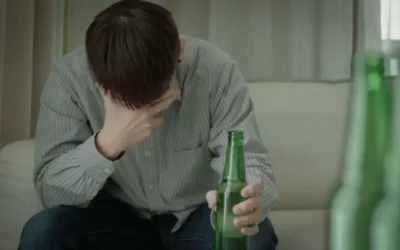Substance Medication-Induced Anxiety Disorder
Having a substance use disorder can also increase the chance of having an anxiety disorder. It’s also possible for chronic alcohol use to contribute to existing anxiety or lead you to develop an anxiety disorder. But if drinking never ends, and the alcohol use becomes chronic, you might begin to see how anxiety and alcohol misuse can feed into each other. While everyone may experience anxiousness from time to time, a person who has an anxiety disorder often finds their anxiety doesn’t go away and may actually get worse with, or without provocation.
What Are Common Symptoms of Alcohol Withdrawal?
For the 2021 survey year, the estimated prevalence of past-month marijuana use for any reason in the BRFSS survey was 12 percent, with 88 percent reporting no marijuana use. Among those with past-month marijuana use, the mean frequency of use was 17 days per month, with half of respondents reporting that they used marijuana 20 to 30 days per month. This pattern was consistent across all age and sex categories. According to HHS, changes in State-level marijuana laws in the United States in the modern era began in 1996 with the approval of Proposition 215, the Compassionate Use Act, by voters in California. This law legalized the use, possession, and cultivation of marijuana for treatment of patients with cancer, anorexia, AIDS, chronic pain, spasticity, glaucoma, arthritis, migraine, or any other illness for which marijuana provides relief, when recommended by a physician. Under the law, marijuana could also be cultivated by patient caregivers.
- The psychiatric perspective that alcohol misuse and co-occurring anxiety represent neurobiologically distinct diagnostic conditions has dominated the field for many decades.
- A panic attack is a sudden episode of intense fear that triggers severe physical reactions when there is no real danger or apparent cause.
- However, drinking alcohol, especially heavily and over a long period of time, can actually increase your anxiety.
Co-Occurring Alcohol Use Disorder and Anxiety

However, the long-term effects of alcohol can cause anxiety or make the symptoms of an anxiety disorder worse. Additionally, chronic alcohol use can lead to tolerance or dependence, as well as cause physical damage to the body (including the brain, liver, and heart). The psychiatric, psychological, and neuroscientific disciplines have developed theories to explain the association between alcohol and anxiety disorders. Each discipline has independently contributed to the understanding of how to best describe and treat alcohol use disorder (AUD) in the context of negative affectivity. However, very little cross-communication has occurred among these disciplines.

Risk Factors for Anxiety
“Blacking out,” or experiencing mild to complete memory loss after heavy drinking, can also occur. It’s not uncommon or unexpected to feel regret when this happens—you may feel regretful about what you said or did to others, or nervous that they will judge you for your behavior. These feelings can naturally increase overall feelings of anxiety in daily life. Additionally, alcohol affects neurotransmitter levels in the brain—the chemical messengers responsible for how we think, feel, and behave.
- For investigators seeking to bridge the multiple disciplines included in this review, the findings concerning stress responses pose challenges and opportunities for future research.
- For instance, sensory grounding with ice or cold water is a technique that some people use to call their attention to an external sensation.
- Additionally, no safety concerns were identified in FDA’s review that would indicate that medical use of marijuana poses unacceptably high safety risks for the indications where there is some credible scientific evidence supporting its therapeutic use.
- For instance, someone who has tried to stop drinking but couldn’t might have an AUD.
- Alcohol withdrawals refer to unpleasant symptoms that occur when alcoholics try to stop drinking or when the alcohol level in their blood falls significantly.
But the last step only starts the process again from the beginning. As the initial calm feeling fades you can feel anxiety as the effects of the alcohol does alcohol cause panic attacks wear off. (iii) Tetrahydrocannabinols does not include any substance that falls within the definition of marijuana set forth in 21 U.S.C. 802(16).
V. Proposal To Reschedule Marijuana
Metabolism of Δ9-THC in most tissues is relatively slow or absent. The majority of the absorbed Δ9-THC dose is eliminated in feces, and about 33 percent in urine. Alcohol use can cause sexual dysfunction, such as difficulty achieving or maintaining an erection and decreased sexual sensations. The impact alcohol has on the reproductive system extends beyond these temporary effects.
Alcohol or marijuana: Which is worse for your health? – Business Insider
Alcohol or marijuana: Which is worse for your health?.
Posted: Tue, 28 Aug 2018 07:00:00 GMT [source]
Fortunately, there are steps you can take to overcome and prevent this scenario. Let’s explore the key information you should know about dealing with an alcohol-induced panic attack. At Priory, our specialists regularly meet with people experiencing both alcohol issues and mental health concerns.
Medical Professionals
In small amounts, alcohol can increase your levels of a neurotransmitter called GABA. Neurotransmitters are chemical messengers which have different effects on the body. GABA has a relaxing effect on the brain, which is why having an alcoholic drink can make you feel temporarily relaxed.

